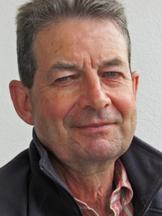
















Professor Mark Harvey
Mark has had a long association with colleagues at the Sustainable Consumption Institute, first as a Senior Research Fellow at the ESRC Centre for Research in Innovation and Competition (1997-2007), and then as a member of the ESRC Sustainable Practices Research Group (2011-2014). His work develops a neo-Polanyian approach to configurations of production, distribution, exchange and consumption, with an historical and comparative perspective. Looking at processes of long duration transformation and societal variation, he has explored a range of diverse objects: tomatoes, genomes, biofuels, drinking water and most recently the soya bean. In these works, he explores themes of the shifting place both of economy in society and of society in nature.
As an ESRC Professorial Research Fellow, he is currently researching the dynamics of the food-energy-climate change trilemma, in the context of the finitudes of environmental resources – particularly of land, water and fossil energy. Different societies generate and face different climate change and resource challenges, analysed as sociogenic rather than anthropogenic sustainability crises. The research compares Brazil, China, India and Europe.
Mark is currently Professor of Sociology and Director of the Centre for Research in Economic Sociology and Innovation (CRESI) at the Department of Sociology, University of Essex. http://www.essex.ac.uk/sociology/staff/profile.aspx?ID=148
Selected Publications
Books
Drinking Water: A socio-economic analysis of historical and societal variation. Routledge Earthscan, 2015.
"Theoretically generative, methodologically creative, richly comparative, and politically engaged, Drinking water doesn’t just work within the Polanyian tradition, it substantively reinvents that tradition. Working imaginatively around the nexus of political economy and political ecology, Mark Harvey and his colleagues confront the question of urban drinking water not just as a “policy problem,” but as a departure point for a bold exploration of the diverse properties of water—as an unruly public good, as an uncooperative commodity, as a mercurial space of state regulation, as an enduring biosocial necessity, and more. This is a truly original and important book." Professor Jamie Peck, University of British Columbia
2002 Exploring the tomato: transformations in nature, economy and society.. Harvey, M. Quilley, S and Beynon, H. Edward Elgar. Cheltenham.
2007 Trust in Food. A comparative and institutional analysis. U. Kjaernes, Harvey, M., and Warde, A. Palgrave.
2007 Karl Polanyi: new perspectives on the place of the economy in society. Harvey, M., Ramlogan, R., Randles, S. Eds. Manchester University Press.
2009 Public or Private Economies of Knowledge? Turbulence in the biological sciences. M.Harvey and A. McMeekin. Edward Elgar. Cheltenham.
Journal Articles
2015 ‘The evolution of false self-employment in the British construction industry: a neo-Polanyian account of labour market formation, Behling, F. and Harvey, M. Work, Employment and Society. DOI 10.117/0950017014559960
2014 ‘Comparing comparing: exercises in stretching – concepts’, Anthropology of Food, S10,
2014 ‘On the horns of the food-energy-climate change trilemma: towards a socio-economic analysis’, Submitted by invitation to Theory, Society and Culture Special Issue, Energising Society, 31, 5, 155-82
2013 ‘Capitalism: restless and unbounded? Some neo-Polanyian and Schumpeterian reflections’ Harvey, M. and McMeekin, A. Economics of Innovation and New Technology, Special Issue in honour of J.S. Metcalfe.
2012 ‘Rudderless in a sea of yellow: the European political economy impasse for renewable transport energy’ Harvey, M. and Pilgrim, S., New Political Economy, June.
2011 ‘The new competition for land: food, energy and climate change’, Food Policy Journal, Harvey, M. and Pilgrim, S. 36, S1, 40-51.
